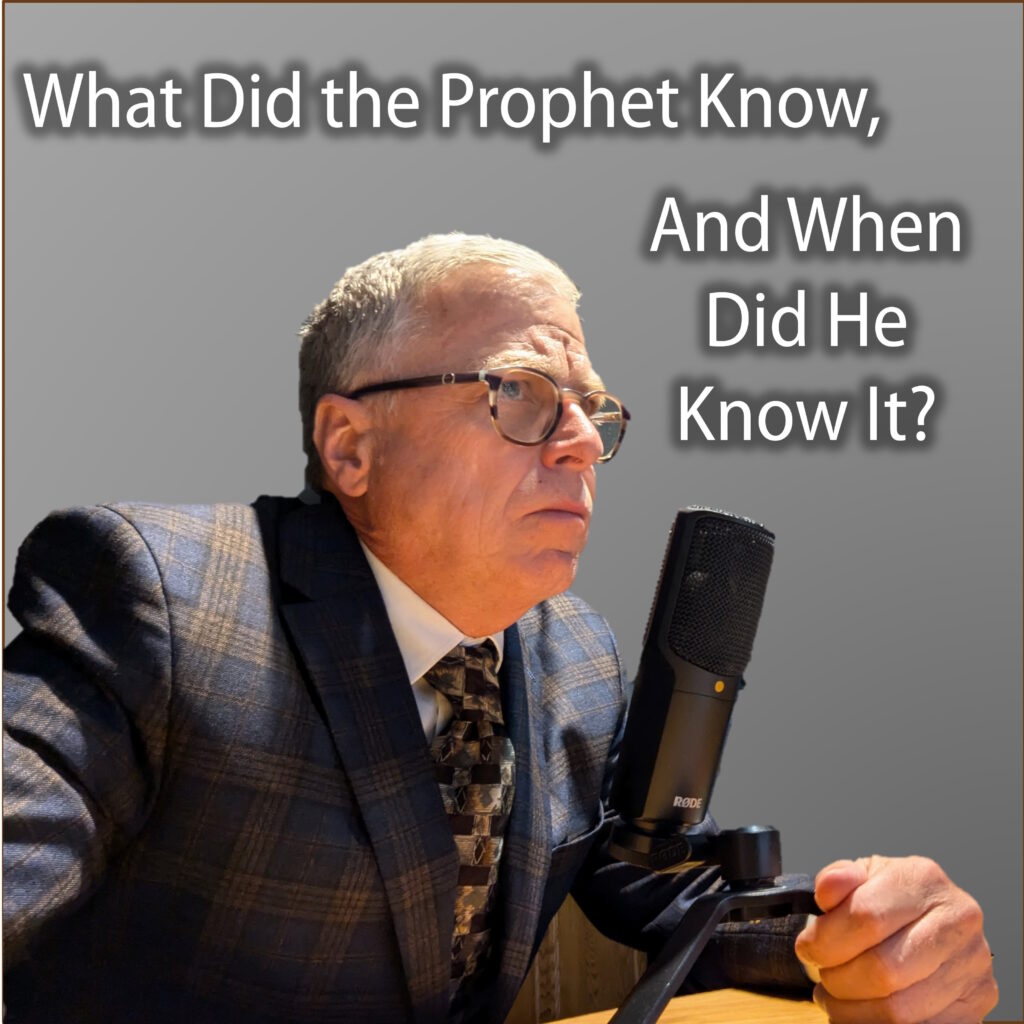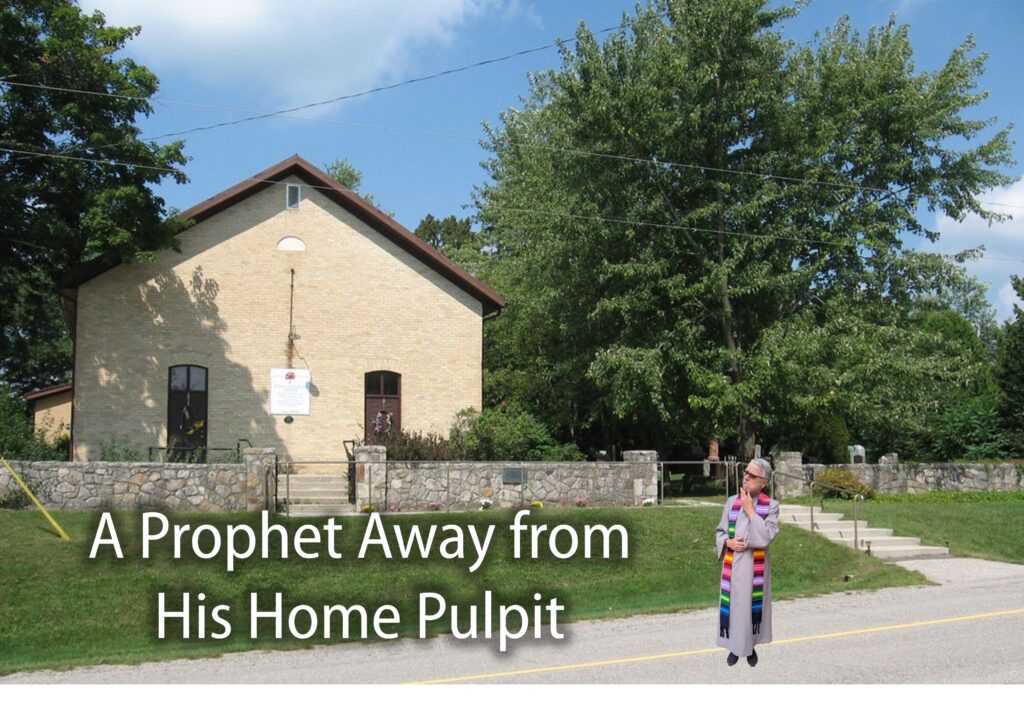Hespeler, October 13, 2024 © Scott McAndless – Thanksgiving Sunday
Amos 5:6-7, 10-15, Psalm 90:12-17, Hebrews 4:12-16, Mark 10:17-31
There is a question that Jesus wants to ask us all this morning. It is a simple question, but it really gets to the heart of the matter. The question is, “Why do you call me good?”
I have noticed that people don’t often take the trouble to ask that question. Instead, they start with it as an assumption. Of course, Jesus is good! Even people who have trouble with the church or with Christian teachings know that. They may not admire Jesus’ people, or at least some of them, but they don’t question for a moment the essential goodness of Jesus!
Jesus’ First Response
But did you notice that that was the very first thing that Jesus felt he had to challenge somebody on when “a man ran up and knelt before him and asked him, ‘Good Teacher, what must I do to inherit eternal life?’” He didn’t engage with the man as a potential disciple despite the extreme devotion that he had displayed. He didn’t even attempt to tackle the thorny question that the man was asking. Or at least he didn’t attempt it until he had first cleared the air on the assumption that the man was making – an assumption he may not have even been aware of: that Jesus was good.
The full response of Jesus is this: “Why do you call me good? No one is good but God alone.” And I realize that people often get hung up on the second part of that. When you pull those two sentences out of their context, it makes it seem as if Jesus is here denying any sense of his own divinity by speaking of a sharp divide between himself and God.
A Shift to the Law
But that is not actually the concern behind Jesus’ response as he makes clear by immediately shifting the conversation to the law: “You know the commandments:” he says, “‘You shall not murder. You shall not commit adultery. You shall not steal. You shall not bear false witness. You shall not defraud. Honour your father and mother.’”
This makes it clear what he meant by his response. He is saying that God has already told this man what is good in the commandments, so why is he looking for Jesus to tell him? If he is not going to listen to God, why would he listen to Jesus?
Ah, but the man insists, he has listened to God. He has lived according to the commandments. “Teacher,” he insists, “I have kept all these since my youth.” And I know that this might sound a bit boastful to us, but this fits with the common understanding of the Old Testament law at the time.
The Goodness of the Law
The law was not generally seen as a list of obligations that you had to follow down to the letter and if you slipped up on some minor requirement you were doomed. They understood the law as a set of guidelines that you could follow and that were meant to guide you in a good life. The issue was not perfection in your observation of the details, the goal was to live a good life according to God’s guidance.
And so, this man is insisting that he has found and lived according to the goodness that God has offered him. He has come to Jesus because he believes that this teacher is good and can lead him to a deeper and richer goodness. He is, in fact, doubling down on his assertion that Jesus is good.
Jesus Loved Him

And did you note Jesus’ response to that? “Jesus, looking at him, loved him.” He honours what this man is aspiring to – this greater goodness and deeper understanding of God’s kingdom. And, for one brief moment, the two of them are completely on the same wavelength both searching for what is truly good.
And then what happens? Everything absolutely falls apart. Just moments later this young man leaves Jesus in a state of shock and grief. It seems as if something has suddenly gone very wrong. It turns out that Jesus’ question was very apt because the man has decided that Jesus is, in fact, not very good.
One Thing More
So, what has gone wrong here? What has Jesus said to change this man’s opinion so drastically? He has told him that there is one thing more that he can do to expand on the goodness that God asks for in the law. “You lack one thing;” Jesus says, “go, sell what you own, and give the money to the poor, and you will have treasure in heaven; then come, follow me.”
Now, on one level this advice is not at odds with the teaching of the law. The law of Moses clearly teaches that one should not covet, should not be overly attached to earthly wealth. The law also strongly encourages and even requires giving to those who are poor. But there is one thing in what Jesus demands that exceeds the requirements of the law.
Why the Law did not Require This
Jesus asks the man to sell everything he has, to completely divest himself of all earthly possessions in order to support the poor. And that was something that the law never demanded. It did not do so for a particular reason.
It was not because there was some inherent goodness in wealth and possessions. It was only because it was generally understood that you had to think beyond your own needs. Since you had people depending on you, your family and household in particular, you couldn’t divest yourself of everything, not even for the good reason of supporting those who are poor.
So, it is actually no wonder that this man is shocked by what Jesus says. The good that Jesus demands, the good that exceeds the requirements of God’s law, is actually something that appears to destroy the very basis of morality of his society, his obligation to family. If he gave away all of those possessions, he could no longer fulfill that obligation. The goodness that Jesus asks for, is clearly at odds with the ethical requirements of that society.
What the Disciples have Given up
That is something that is made crystal clear at the end of the passage. When Peter talks about how the disciples left everything to follow him, Jesus confirms that they have left behind house and brothers and sisters and mother and father and children and fields.
They have abandoned all of the things that created the kinds of obligations that required them to keep possessions. They can therefore do what the young man cannot. But we should not miss the fact that that means that they have abandoned the very foundation of what it usually meant to be good people in that society.
So, you see what I mean when I say that the fundamental question in this story is “Why do you call me good?” Jesus goes out of his way to demonstrate that he is in fact not good according to the standard ways of judging goodness in that society. No wonder he is so surprised that someone assumes his goodness.
Jesus’ Question for Us
And that brings me to the question that Jesus is asking you and me and all Christians today. It is unsurprisingly the same question: “Why do you call me good?”
The world is full of people who identify themselves as followers of Christ – who call Jesus good – and yet are completely caught up in the systems of this world, systems that Jesus’ very existence calls into question.
The Capitalist System
For example, we all live within an economic system called capitalism. It is a system, there is no question, that has the potential of doing a lot of good. It creates wealth and wealth can do good things. It encourages and rewards creativity and innovation. It creates employment which allows people to live.
We are also aware of some of the shortcomings of this system. It tends to create abundantly more wealth for some than others. It has a tendency to create entities that become so powerful that they dominate markets in ways that prevent anyone else from profiting from their innovation and creativity.
But, with all the good and all the bad, that is the system that we live with. And we are all aware that, should the system fall apart, the results would likely be catastrophic for everybody. So, we all exist in this system.
As believers who live within such a system, what do we do each Sunday and in our prayers and devotions? We come to Jesus in a spirit of thankfulness for all that we have and we say, “Good teacher, what shall we do in this world?”
Jesus’ Disruption
And do you know what Jesus replies: He says, “Why do you call me good? Don’t you know that I have come to disrupt this very system that you live in? Don’t you know that I have come so that “many who are first will be last, and the last will be first”?
Didn’t you hear it when my mother proclaimed that my birth meant that, “he has filled the hungry with good things and sent the rich away empty.” (Luke 1:53) And remember when I said, “Blessed are you who are poor,” but “But woe to you who are rich,” and “Blessed are you who are hungry now,” but “Woe to you who are full now.” (Luke 6:20-25)
If we are so invested in the economic system that we live in that we are not willing to see it disrupted, all I am saying is that maybe we had better think twice before we call Jesus good.
Supremacist Views
We seem to be encountering more and more people these days who call Jesus a good teacher and yet are totally committed to racist or supremacist views. Christian nationalism is on the rise. We see it most openly in the United States. But we ought not to pretend that it is not growing here in Canada too.
And I know that Christian nationalism can take many forms. Perhaps some are simply trying to do their best to be patriotic while they hold onto their faith. But in some of the more toxic forms, it has been expressing itself in extreme racism – demonizing immigrants and enforcing a social order in which straight white Christian men dominate every part of society. And such people do invoke Jesus and say, “Good teacher, what must we do to protect our White culture?”
Teachings About Strangers
And Jesus asks, “Why do you call me good? You know the law, it is clear. It says “You shall not oppress a resident alien; you know the heart of an alien, for you were aliens in the land of Egypt.” (Exodus 23:9) And you know that I have said, “for I was hungry and you gave me food, I was thirsty and you gave me something to drink, I was a stranger and you welcomed me.” (Matthew 25:35)
“If you are a Christian nationalist, you need to understand that if you call me good, you will have to accept that I am going to make you question all of the things that make you feel superior to others and maybe the things that make you feel safe. Know that, if you call me good, you may leave our interview shocked and grieving.”
The Real Question
So, you see, “Why do you call me good?” is the real question, the most important one. If we are going to follow Jesus, we can’t just follow him on our own terms. Jesus will always insist that we must follow him on his terms. And those terms will necessarily call into question the moral systems that we have accepted uncritically. They will challenge our assumptions about the systems by which our world works. They will definitely challenge our prejudices and racial pride.
If we are not careful, Jesus will absolutely shock us and send us away grieving. But here is the secret that I want you to hold onto. Jesus is good. And if he challenges us and shocks us, it is because he cares for us and wants us to grow. That is the good news about Jesus.




